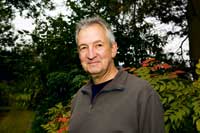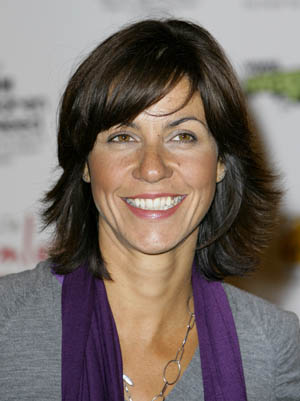In The Hot Seat: BBC boss defends rural programming

The BBC’s portrayal of British farming has come under fire. Caroline Stocks ask Andrew Thorman, executive editor of rural affairs programming, if the criticism’s fair.
Which programmes do you oversee?
I’m responsible for Countryfile on BBC One, as well as Farming Today, Farming Today This Week, On Your Farm, Open Country, Costing the Earth and Ramblings on Radio 4.
My teams also make occasional series such as The Royal Show in Crisis on Radio 4 earlier this year and Our Food, Our Future on Radio 4 last year.
What does your job entail?
I manage the production teams making these programmes. A big part of my job is steering the right editorial course – making sure our programmes provide a balanced picture of rural life and that we stick to our brief: To inform and to entertain.
We often deal with controversial issues where opinions are sharply divided – hunting, GM foods, bovine TB, or wind power, for example. Making sure we don’t shy away from these issues is important.
Which of the BBC’s programmes are aimed at rural people, rather than about them?
I like to think our programmes provide something for everyone. You might not be a walker but that doesn’t mean you shouldn’t and wouldn’t enjoy listening to Ramblings with Clare Balding.
In the same way, Farming Today isn’t just for farmers, just as Law in Action isn’t just for lawyers. But I like to think people who listen to or watch our programmes come away knowing more about the countryside than before.
I’m always banging on about how important it is to make what we do accessible without dumbing it down. If someone couldn’t understand our rural programmes because they found them too specialist, I’d be doing something wrong.
Other primary industries don’t have programmes made about and for it – why is farming different?
Farmers are responsible for managing 75% of the UK’s land. We depend on them for how our food is produced and how the countryside looks.
They are tremendously important. But we are not making programmes for farmers, we are making programmes about farming and about the whole way our countryside and rural affairs are managed – from the quality of our rivers to the quality of rural life, housing, transport and health provision.
What audience is the BBC trying to attract by moving Countryfile to a 7pm slot?
I hope we are reaching more families. It’s always been important to BBC One and the Countryfile team to keep loyal viewers who watched on Sunday mornings but I think the Controller of BBC One, Jay Hunt, was extremely astute when she decided on the move. It opened up the countryside to millions more people.
I think Countryfile is probably the most effective showcase there is for what farmers do and proves that you can mix journalism and entertainment in a package the whole family can enjoy.
How successful has the move been?
The audience has jumped from about 2m to more than 6m. It’s now regularly the most-watched show on BBC One on Sundays. It’s also Britain’s most popular factual programme.
We are bringing the countryside to a very large audience. Countryfile comes in just behind programmes like Coronation Street, Doc Martin, EastEnders and Strictly Come Dancing.
I’m proud of that because it shows what we always believed – the countryside is a wonderful place to be.
What is the purpose of Countryfile – is it to promote rural life to the public, or to inform farmers? Who is it for?
It provides a window on a world which millions don’t get to see every day and it’s a breath of fresh air for many – you can get a sense of the countryside without getting your feet dirty. It’s also there to celebrate as well as scrutinise what happens in the countryside.
The challenge is getting the balance right between entertainment and fact-finding. I am passionate about ensuring we cover the countryside “warts and all”. Nothing in the countryside is black and white apart from the cows. But the more people understand, the more they’ll appreciate rural issues.
Do presenters or producers have any experience of agriculture?
 | |
|---|---|
| Countryfile’s Julia Bradbury |
Many do, but it’s not essential. It’s more important we have an understanding and interest in the countryside.
Looking at our presenters, not only is Adam Henson a real farmer but he’s a brilliant communicator and this has given viewers a unique insight to the ups and downs of farming. His working knowledge, as a tenant farmer managing 600 acres, is crucial.
Julia Bradbury is passionate about the countryside, while Matt Baker takes every opportunity to visit his parents’ farm in County Durham.
John Craven has been reporting the rural scene for more than 20 years and, while no one is suggesting he’s a farmer, I don’t think anyone could say he doesn’t appreciate or understand farming.
Farmers have been very critical of some of Countryfile’s content around the livestock industry. Is the BBC pushing an anti-meat agenda?
We’re certainly not. But there are a number of hot debates in this area and we have to remain impartial.
Some sectors of the farming industry occasionally feel we’re “anti” them and we should be more supportive. But we can’t be partisan.
I grew up on a farm and I live in rural Herefordshire surrounded by farming friends, so I do get it in the neck when we question aspects of the industry.
But people expect us to ask difficult questions, especially when the industry is in receipt of much public money.
I hope we ask equally tough questions of everyone – whether they’re a farmer, conservationist, or a DEFRA minister – that’s our job.
While you don’t manage The Archers, when it began it was produced in collaboration with government to give farmers information to help increase food production post-World War Two. Is food security an issue again, 60 years later?
I don’t think we’re quite at the “Dig for Victory” stage. But BBC programmes have helped highlight the importance of a clear food strategy.
We produced a series on this very subject a year ago (Our Food, Our Future) and it’s a topic which has since been covered elsewhere. It’s also one we intend to revisit. Looking at priorities for land use – the food versus fuel debate – is a key issue facing the country and we will continue to reflect this.
Given Farming Today’s name and broadcast time, the programme is obviously aimed at farmers. However on some days the programme doesn’t feature farming stories. Why not?
I’m often asked this. We produce Farming Today with the focus on listeners who are up and about at that time and nowadays they’re just as likely to be city commuters as farmers.
The idea is to provide a take on food production and rural life issues, which of course includes many aspects of farming. We deliberately tried to broaden the programme’s appeal as the number of farmers has fallen.
Ten years ago the programme was reaching an estimated 650,000 listeners a week. Today that figure is regularly more than 900,000 and we’ve hit the 1m listener mark a couple of times this year on Saturday mornings.
Why doesn’t Farming Today showcase the latest developments in agriculture or give market prices etc? What is its role?
Stock prices are available elsewhere in much greater detail than we could ever do them justice. Farming Today is about reflecting trends and issues within the industry and where anyone feels we aren’t doing this, I welcome feedback.
Although there’s never room to cover everything, we do have a useful comments page on the Farming Today website which I’d urge readers to use. I promise we take notice of it.
If we made programmes simply aimed at farmers with entirely specialist information then first, we’d be missing an opportunity to bring farming to a wider audience and second, we’d be duplicating what others, such as Farmers Weekly, are doing.
Is increased BBC investment in regional areas going to extend to rural areas too?
The BBC is determined to be closer to audiences across the whole UK.
We will make half of all national television programmes outside of London by 2016. This will bring programme-makers into direct contact with both the urban and rural parts of the regions we are moving to and be better placed to find and cover more stories.
I think you will see more filming in different locations, including rural locations.
Having more BBC staff living in and around the Peak District, the Lakes and the Dales rather than in west London can only enhance their appreciation of rural issues.
How does farming and rural affairs feature in the future of the BBC’s programming?
The success and record-high audience Countryfile and Farming Today shows there’s a great appetite for enjoying and understanding the countryside.
The BBC is committed to reflecting the lives of people across Britain, including rural communities and will continue to do so through the programmes I look after as well as our news and other factual programmes.
Flagship Farming Shows On The BBC
Farming Today | Weekdays | 5.45am | Radio 4 |
Farming Today This Week | Saturdays | 6.30am | Radio 4 |
Open Country | Thursdays | 3pm | Radio 4 |
Countryfile | Saturdays | 7pm | BBC One |
Country Track | Sundays | 11am | BBC One |
Landward | Fridays | 7pm | Radio Wales |
Country Focus | Sundays | 7.30pm | Radio Wales |
Blas! | Wednesdays | 1.15pm | Radio Cymru |
Farm Gate | Saturday | 6.45am | Radio Ulster & Radio Foyle |

